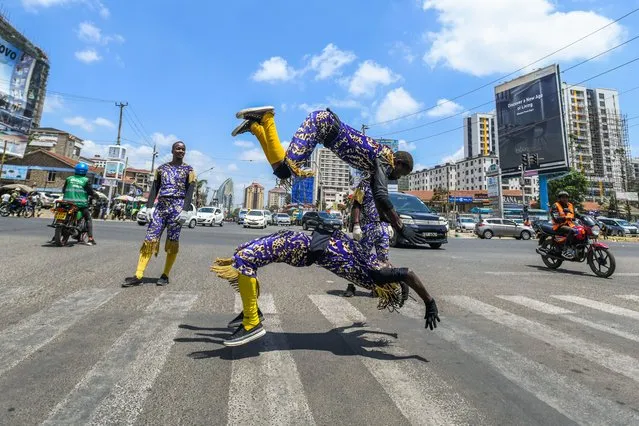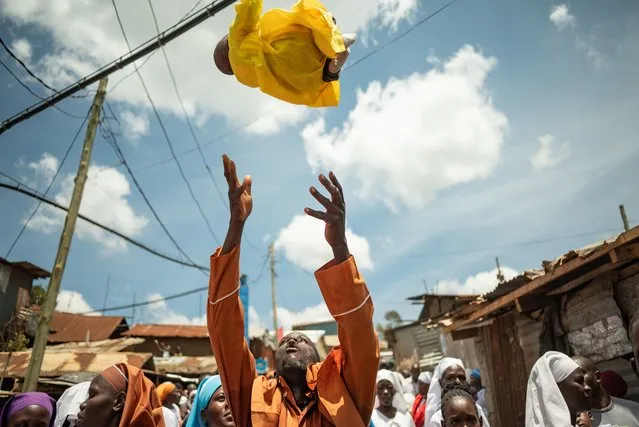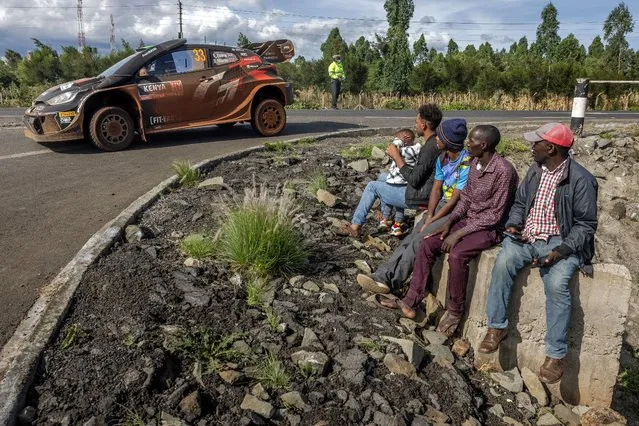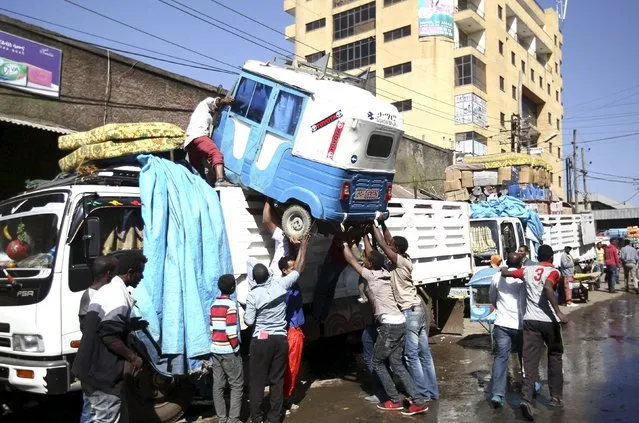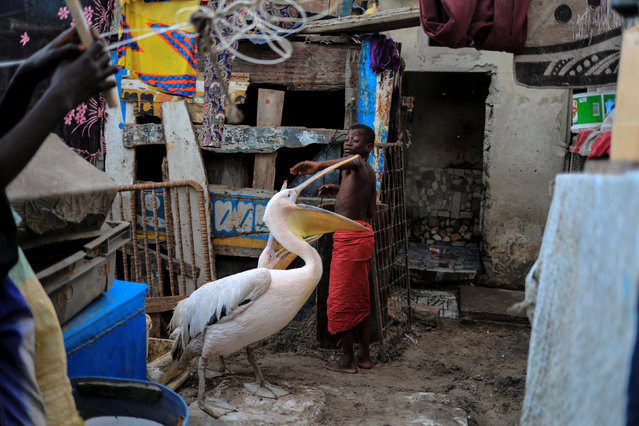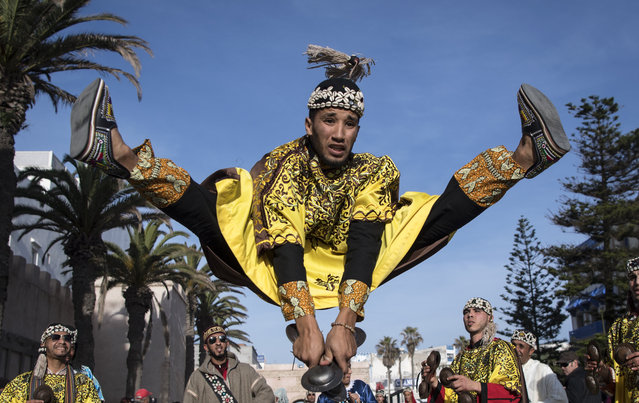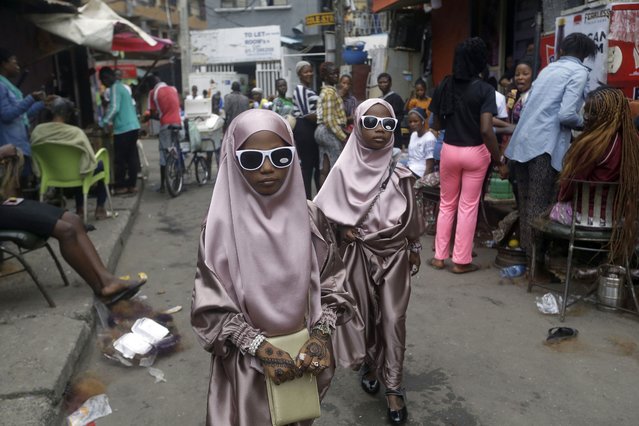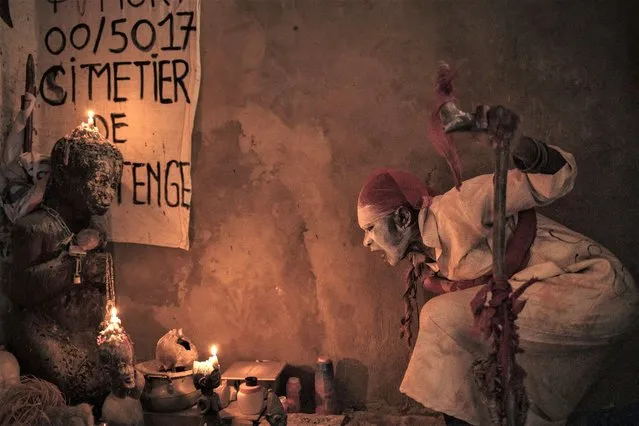
The “voodoo” wrestler known as Panthère utters incantations above the alter of his shrine in Kinshasa, Democratic Republic of Congo, on July 27, 2023. In the capital of DR Congo, dozens of men and women – including former wrestlers – practice “voodoo wrestling”, using traditional fetishes and animals. Fights are organised in some of the city's poorest and most densely populated districts. (Photo by Alexis Huguet/AFP Photo)
05 Aug 2023 00:02:00,post received
0 comments

